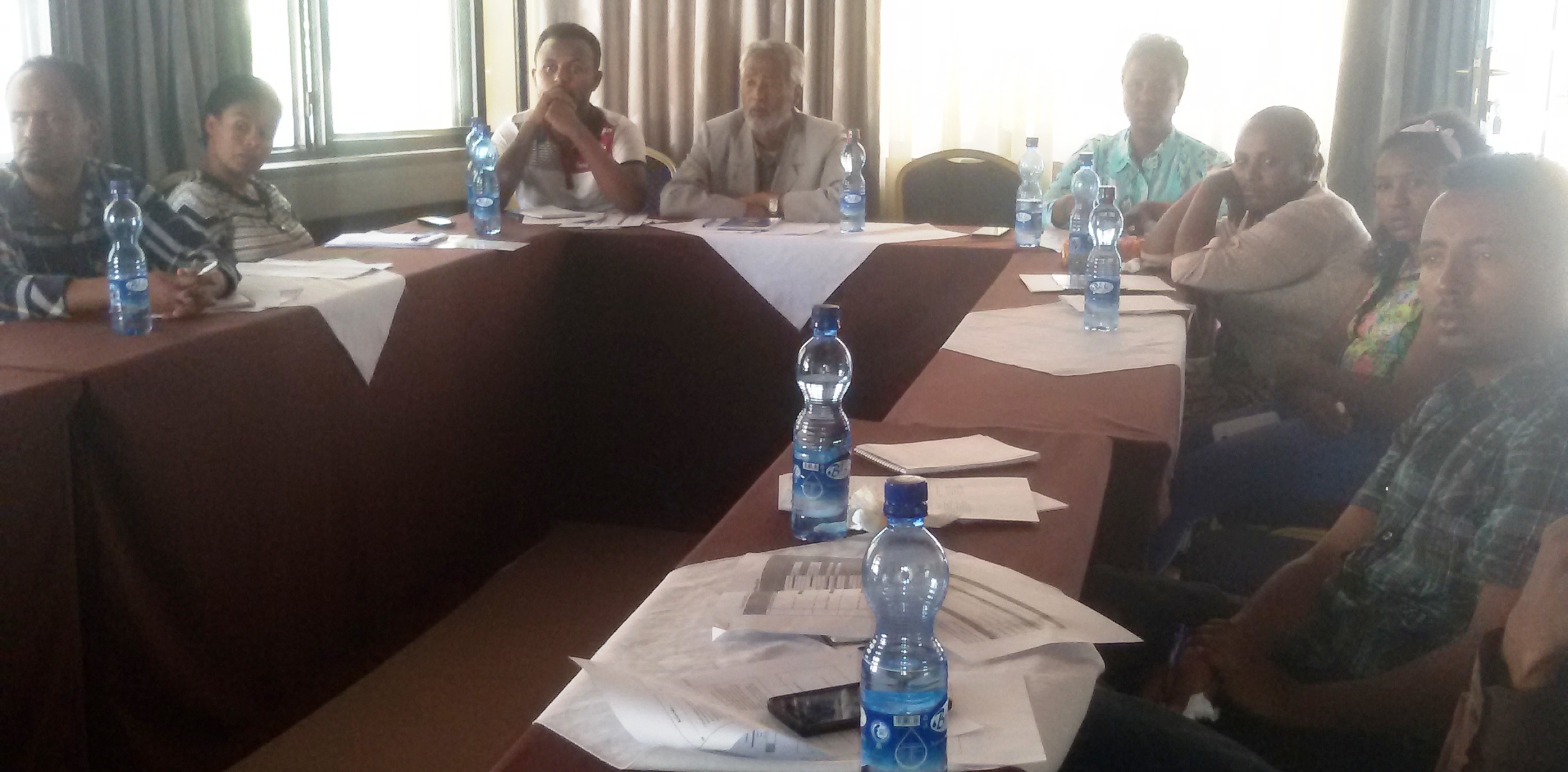ESOG Conducting Catchment Area Meetings
The Ethiopian Society of Obstetricians and Gynecologists (ESOG) conducted a Catchment Area Meeting (CAM) at Papyrus Hotel, Bahir Dar, Amhara Regional State, on March 3, 2016. The CAM is part of the phase-out process of the Expanding the Prevention of Mother to Child Transmission of HIV (PMTCT) in the Private Health Sector in Ethiopia Project that has been running in private facilities throughout the country for the last five years. In attendance were Addiszemen, Amhara Health Bureau (AHB) PMTCT Focal Person (FP); PMTCT FP & HR Manager from Burie St Giorgis Hospital; two participants from Gamby Teaching General Hospital; two participants from Marie Stopes International Mothers and Children Health (MCH) Center; one participant from Abrak Women Clinic; one participant from Amhara National Regional State (ANRS) Pharmaceutical Fund and Supply Agency (PFSA) Bahir Dar Hub; one participant from ANRS Bahir Dar Regional Laboratory (RRL) and three mentors from ESOG PMTCT Project.
Two presentations on Expanding PMTCT Service in Private Health Institutions in Ethiopia-Review and PMTCT five years (2011-2016) Facilities Performance Presentation by ESOG’s Physician Clinical Mentor and M&E Officer and preliminary discussions were part of the CAM. A total of 78 private health facilities, including four satellite facilities in the Harari Region have been supported through the project, according to one of the presentations.
“After the tea-break a plenary discussionco-chaired by Sr. Addiszemen, AHB PMTCT FP and Dr. Tesfaneh, a Physician mentor from ESOG, followedthe presentations,” reads the report by the mentor group from the Society. “Various issues on the PMTCT program implementation achievements, gaps and challenges, actions taken and the lessons learned were raised.”
The RRL representative appreciated the contribution of ESOG in maintaining good performance throughout the project period and reminded the participants to keep strong working relationship with the RHB, PFSA & RRL, according to the same report.
A series of CAMs have been underway in Dessie, Dire Dawa, Adama and Addis Ababa upon the same mission.


